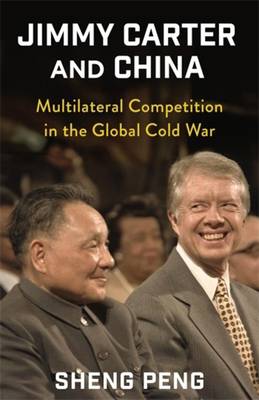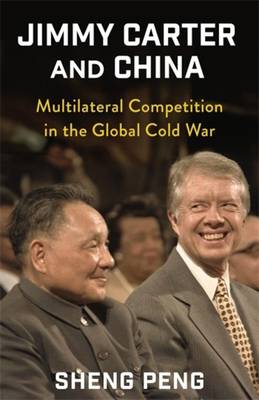
- Afhalen na 1 uur in een winkel met voorraad
- Gratis thuislevering in België vanaf € 30
- Ruim aanbod met 7 miljoen producten
- Afhalen na 1 uur in een winkel met voorraad
- Gratis thuislevering in België vanaf € 30
- Ruim aanbod met 7 miljoen producten
Omschrijving
In the late 1970s, with relations between the Soviet Union and the People's Republic of China strained, the Carter administration saw an opening. The United States and its allies embarked on military and dual-use technology transfers to China as a counterweight to the USSR, transforming rapprochement into full-blown cooperation. Carter's decision to pivot away from the United States's traditional ally, the Republic of China on Taiwan, and embrace the People's Republic redefined the Cold War from a struggle against communism to one against the Soviet Union. It not only complicated a variety of American objectives--from the security of Taiwan to global technology transfer and US-Soviet détente--but also sowed the seeds of future tensions between China and the West.
This book is an international history of the Carter administration's intricate relations with the two competing Chinese regimes, highlighting the geopolitical significance and lasting implications of this pivotal moment. Drawing extensively from previously untapped archives in China, Taiwan, Western Europe, the United States, and Russia, Sheng Peng uncovers the internal governmental debates across world capitals that affected Carter's China policy. He charts how both mainland China and Taiwan were integrated into global supply chains for defense and dual-use technologies during the 1970s and 1980s and the present-day consequences. Jimmy Carter and China demonstrates that technological competition was as crucial as strategic and ideological competition to the course of the Cold War, and together they profoundly shaped US-China relations and the world today.Specificaties
Betrokkenen
- Auteur(s):
- Uitgeverij:
Inhoud
- Aantal bladzijden:
- 344
- Taal:
- Engels
- Reeks:
Eigenschappen
- Productcode (EAN):
- 9780231211949
- Verschijningsdatum:
- 10/03/2026
- Uitvoering:
- Hardcover
- Formaat:
- Genaaid
- Afmetingen:
- 152 mm x 229 mm
- Gewicht:
- 630 g

Alleen bij Standaard Boekhandel
Beoordelingen
We publiceren alleen reviews die voldoen aan de voorwaarden voor reviews. Bekijk onze voorwaarden voor reviews.







